Society
How people group together, organise their rules and systems are all part of what create a society. In this section articles examine the nature of society how it interacts with other themes of culture, power, etc. and how societies have developed and changed over time. The structures of the ancient world are explored as are the complex feudal systems and the varied societies of Empire and modernity.
Sort by:
Date (Newest first) | Title A-Z
Show:
All |
Articles |
Podcasts |
Multipage Articles
-

How is the source base of the twentieth century different from that of earlier periods?
ArticleClick to view -

Anything but enlightened: child slavery in the Roman world
ArticleClick to view -

Enduring Civilisation: cities and citizens in the ‘Aztec Empire’
ArticleClick to view -
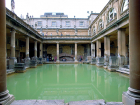
Sacred waters: Bath in the Roman Empire
ArticleClick to view -
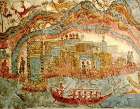
The emergence of the first civilisations
ArticleClick to view -

Space and behaviour at the court of Alexander the Great
ArticleClick to view -

Out and About in Paestum
ArticleClick to view -
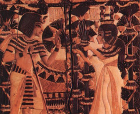
The many queens of Ancient Egypt
ArticleClick to view -

History Abridged: Migration – the Potato
ArticleClick to view -

Immigration and the making of British food
ArticleClick to view -

The changing convict experience: forced migration to Australia
ArticleClick to view -
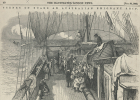
Perfect liberty and uproar: a short case study
ArticleClick to view -

Out and About: exploring Black British history through headstones
ArticleClick to view -

The great British postwar exodus
ArticleClick to view -

Real Lives: Maria Rye’s emigration home for destitute little girls
ArticleClick to view -

Migration into the UK in the early twenty-first century
ArticleClick to view -

The 1620 Mayflower voyage and the English settlement of North America
ArticleClick to view -

When was the post-war?
ArticleClick to view -

What is interesting about the interwar period?
ArticleClick to view -
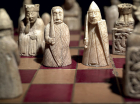
Gaming the medieval past
ArticleClick to view

